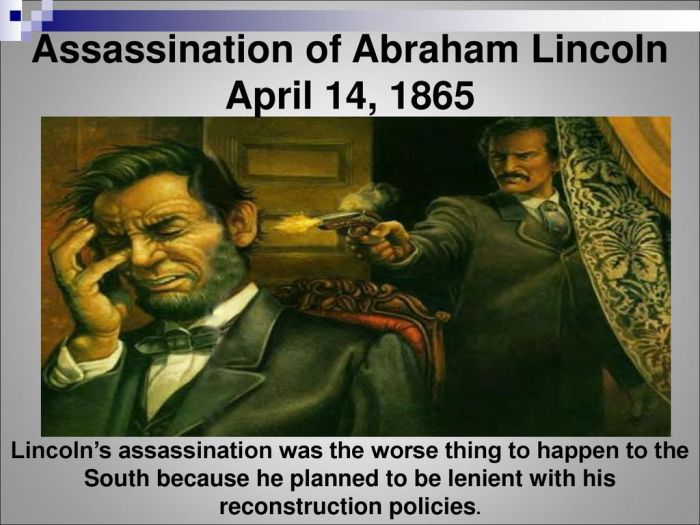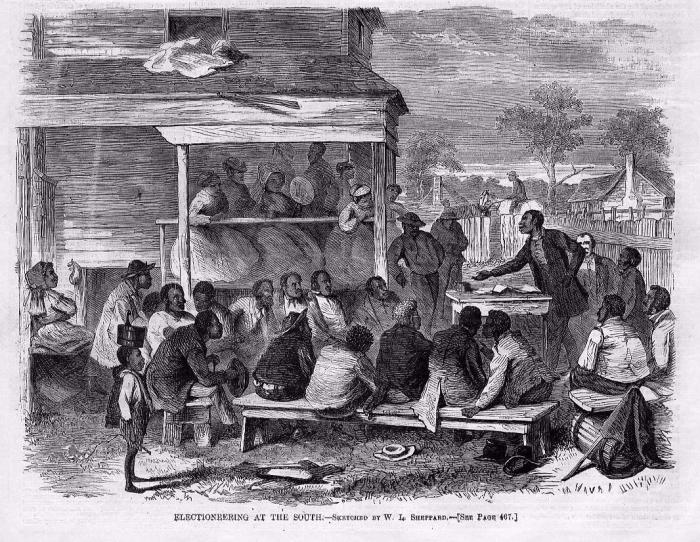Andrew johnson kicking freedmen’s bureau – Andrew Johnson’s opposition to the Freedmen’s Bureau stands as a pivotal chapter in the history of Reconstruction. His stance, rooted in states’ rights and appeasement of white Southerners, had profound implications for the bureau’s ability to support freed slaves during this transformative period.
The Freedmen’s Bureau, established to provide aid and assistance to freed slaves, played a crucial role in Reconstruction. Its activities, ranging from establishing schools to protecting civil rights, were instrumental in supporting the transition to freedom for African Americans.
Andrew Johnson’s Opposition to the Freedmen’s Bureau

Andrew Johnson’s presidency (1865-1869) was marked by his opposition to the Freedmen’s Bureau, a federal agency established to provide aid and assistance to freed slaves during Reconstruction. Johnson’s stance was rooted in his belief in states’ rights and his desire to appease white Southerners who resented the bureau’s presence.
The Freedmen’s Bureau and its Role in Reconstruction
The Freedmen’s Bureau was established in 1865 as part of the Reconstruction effort following the Civil War. Its mission was to provide food, clothing, medical care, and educational opportunities to freed slaves, as well as to protect their civil rights.
The bureau played a crucial role in helping freed slaves transition to freedom and rebuild their lives. It established schools, provided food and clothing, and protected freedmen from violence and discrimination.
The Impact of Johnson’s Vetoes on the Freedmen’s Bureau, Andrew johnson kicking freedmen’s bureau
Johnson vetoed several bills to renew the Freedmen’s Bureau, weakening the agency and limiting its ability to support freedmen during Reconstruction.
The vetoes prevented the bureau from expanding its operations and providing much-needed assistance to freed slaves. As a result, many freedmen faced poverty, discrimination, and violence.
The Political and Social Fallout from Johnson’s Opposition
Johnson’s opposition to the Freedmen’s Bureau sparked a political backlash. Radical Republicans, who supported the bureau, accused Johnson of obstructing Reconstruction and undermining the rights of freed slaves.
The political conflict culminated in Johnson’s impeachment by the House of Representatives in 1868. Although he was acquitted by the Senate, Johnson’s presidency was weakened, and his opposition to the Freedmen’s Bureau contributed to the failure of Reconstruction.
Query Resolution: Andrew Johnson Kicking Freedmen’s Bureau
What was Andrew Johnson’s motivation for opposing the Freedmen’s Bureau?
Johnson opposed the Freedmen’s Bureau due to his belief in states’ rights and his desire to appease white Southerners.
What were the consequences of Johnson’s vetoes of the Freedmen’s Bureau renewal bills?
Johnson’s vetoes weakened the Freedmen’s Bureau and limited its ability to support freedmen during Reconstruction.
How did Johnson’s opposition to the Freedmen’s Bureau contribute to the rise of white supremacy?
Johnson’s actions undermined the efforts of the Freedmen’s Bureau to protect the civil rights of freedmen, contributing to the rise of white supremacy.

